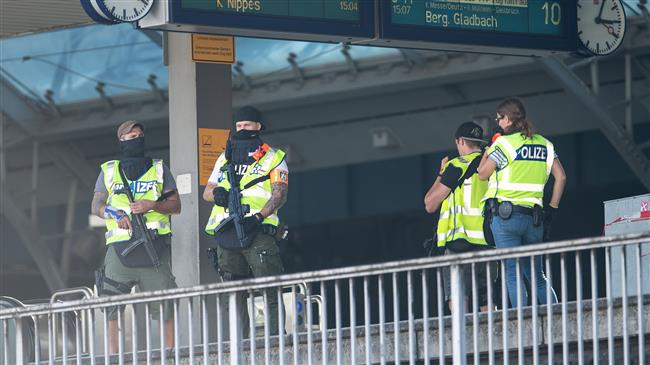Europe 'not worried' as militants return from Iraq, Syria
Germany says more than a hundred militants, who had been fighting in Iraq and Syria, have now returned to the country, but among them only dozens are being investigated for possible terror links.
German Interior Ministry said in a statement on Friday that they know of 124 people, who were part of at least 249 people who had traveled from Germany to Iraq and Syria. Twenty-one of them were killed.
The Foreign Ministry released the information in response to the Left Party, which has criticized investigating the returning militants, whom it claims had voluntarily been supporting Syria-based Kurdish militants in northern Syria.
One of the party politicians Ulla Jelpke, has recently denounced questioning the militants as “grotesque".
She was referring to the US-backed Kurdish People’s Protection Units (YPG), which is considered by Turkey as the Syrian branch of the PKK militant group that has been fighting for an autonomous region inside Turkey since 1984.

Extremists from across Europe joined Daesh in droves in 2014, when the Takfiri terror group launched its campaign of bloodshed and destruction in Iraq and Syria.
Back then, many European leaders ignored repeated warnings that militants could return home one day and that they would be a security challenge for years to come across the continent.
Earlier this month, Russia warned that Daesh was expanding its presence in the Syrian regions controlled by Washington and its allied Kurdish militants, revealing that the Takfiri terror outfit has managed to take hundreds of people hostage in those areas.
According to EU's Counter-terrorism Coordinator Gilles de Kerchove, from some 5,000 Europeans who joined Daesh, hundreds have returned to their home nations across the continent this year.
Europol's annual EU Terrorism Situation and Trend Report (TE-SAT) also warned earlier this year that a particularly strong security threat is posed by militants, who have received military training in the use of weapons and explosives, or have gained combat experience during their stay in Iraq and Syria.
Returning militants no longer ‘biggest threat’ for UK
At least 900 Britons of “national security concern” are estimated to have traveled to Syria to join Daesh. While about 20 percent of those have been killed, some 40 percent have returned to the United Kingdom, according to the country's latest counter-terrorism strategy.

The European Union’s top terror official, Gilles de Kerchove, also said in a report last year that Britain was home to up to 25,000 Takfiri extremists. He warned that they could pose a terrorist threat to the country as well as other EU countries.
Counter-terrorism chief Neil Basu, however, said they are no longer considered as a main threat.
He said that police and prosecutors had been unable to build a case for prosecution against most returnees.
The greatest concern, Basu said, however, came from “simple attacks on softer targets that are cheap to mount, easy to disguise and harder to see and stop.”
“The weapons used by the attackers can now range from home-made explosives to a family car or an everyday kitchen knife,” he added.
Britain has been targeted by several Daesh-claimed or Daesh-inspired terrorist attacks over the past years. The country increased the terror threat level to critical in the aftermath of a bombing that killed at least 22 people, including seven children, at the Manchester Arena at the end of a concert last year.
VIDEO | For Gaza: US campus protests
Riyadh summit: Muslim, Arab officials call for sanctions on Israel
Russian forces take over village in Donetsk: Report
US to be held responsible if Israel invades Rafah: Abbas
IRGC developing new kamikaze drone armed with smart loitering munitions
VIDEO | Press TV's news headlines
Host Saudi raises concerns over economic impact of Gaza war at global summit
Iranian students voice solidarity with pro-Gaza rallies in West













 This makes it easy to access the Press TV website
This makes it easy to access the Press TV website